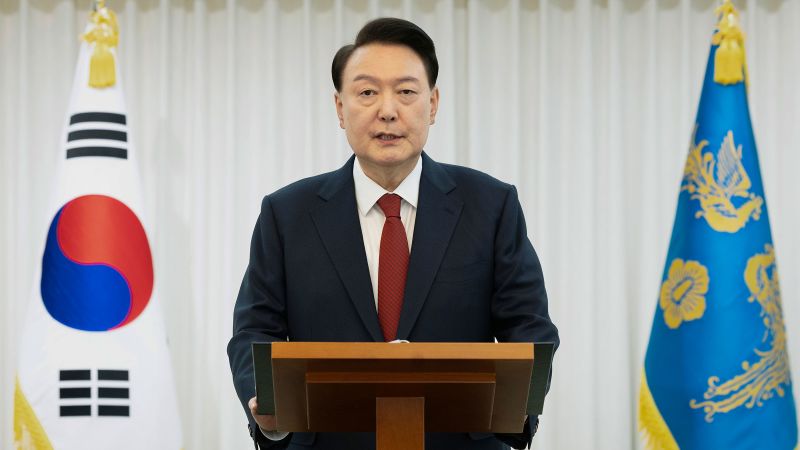South Korea was thrown into political turmoil as its parliament voted to impeach President Yoon Suk Yeol on Saturday, marking a significant rebuke against him. The impeachment process was initiated by his own ruling party, which turned against him after he refused to resign in the aftermath of his controversial attempt to impose martial law. This development suspends Yoon from exercising his presidential powers until the Constitutional Court of South Korea makes a final decision on his fate. Notably, this is the second time in less than a decade that a South Korean leader has undergone impeachment proceedings while in office.
The aftermath of the impeachment vote saw jubilant reactions from protesters outside the parliament building. In response, President Yoon expressed his determination not to give up, stating that he would continue to work for the nation with the support of the people. The mantle of leadership has now temporarily shifted to Prime Minister Han Duck-soo, who will act as the country's president during this critical period.
The culmination of this dramatic political saga came after Yoon's ill-fated decision to declare martial law on December 3, a move that backfired and triggered widespread calls for his removal. Subsequent events, including the defiance of opposition parties and the withdrawal of support from within his own party, culminated in a resounding vote for impeachment by the parliament.
The scenes in Seoul were a reflection of the deep-seated divisions within the country, with thousands of both supporters and detractors of President Yoon taking to the streets to voice their positions. While some celebrated the impeachment as a victory for democracy and the rule of law, others stood in solidarity with the embattled leader, waving flags and chanting slogans in support of Yoon.
President Yoon's tenure in office has been tumultuous, marked by low approval ratings, political scandals, and a contentious relationship with the opposition-dominated parliament. His decision to impose martial law was met with shock and outrage, prompting investigations and legal actions accusing him of treason and abuse of power.
As the Constitutional Court deliberates on Yoon's impeachment, South Korea braces for a period of uncertainty reminiscent of the impeachment crisis that engulfed the nation in 2016 and 2017 during the removal of then-president Park Geun-hye. The intricate interplay of politics, law, and public sentiment underscores the challenges facing South Korea as it navigates this latest chapter in its democratic evolution.

